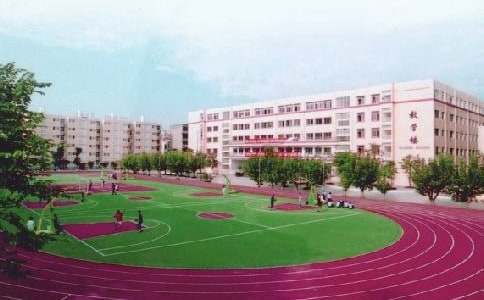国内英语资讯:Spotlight: Creating shared future for common prosperity, from vision to a

BEIJING, Jan. 26 -- The concept of building a community with a shared future for mankind has borne fruit as witnessed by the expanded ties between China and other countries, aimed at spreading prosperity across the globe.
At this year's Davos summit of political and business leaders, its theme of creating a shared future in a fractured world is relevant to the key points Chinese President Xi Jinping expounded in a speech in the Swiss alps last year which resonated with the wider public.
The concept, based on Chinese characteristics and the spirit of the time, illustrates China's global vision and responsibility as a major country in the face of profound changes taking place in the world today.
Having been welcomed by the international community, developing countries in particular, the idea has been translated into concrete actions through such initiatives as jointly building the Belt and Road.
REMARKABLE PROGRESS
Confronted with challenges of a sluggish global economic recovery, outbreaks of regional conflicts and intensifying global issues, China has been pushing ahead with reform, opening up and its socialist modernization drive, achieving breakthroughs on many fronts.
With more than 30 percent of global economic growth coming from China alone in the past five years, the country has served as a major stabilizing factor for the world.
In 2024, China's gross domestic product rose to 80 trillion yuan (12.3 trillion U.S. dollars). Realizing high-quality growth has become a must for sustaining a healthy social and economic development.
The world's largest developing and most populous country is expected to import 24 trillion dollars' worth of goods, attract 2 trillion dollars of inbound direct investment, and make 2 trillion dollars of outbound investment in the next 15 years.
Being an active advocate and strong force for world poverty alleviation, China has lifted more than 700 million people out of poverty since the start of its reform and opening-up drive in 1978, an achievement hailed by observers as "a humanitarian miracle the world has never seen."
It also set an ambitious target of lifting all people out of poverty by 2024.
The well-being of the Chinese people cannot be separated from that of humankind. In recent decades, China has offered much assistance and beneficiary loans for developing nations.
"China has become a big investor in Africa. Its direct investments are very helpful for economic development there," said Gerhard Stahl, visiting professor at the College of Europe in Bruges, Belgium.
Through the Forum on China-Africa Cooperation (FOCAC), China has "worked closely with African countries to come up with programs and financial resources to address poverty and underdevelopment in those countries," said Gerishon Ikiara, an economist with the University of Nairobi.
COMMON PROSPERITY
For the first time, the Chinese concept of building a community with a shared future for mankind was incorporated into a UN Security Council resolution in March 2024, a further recognition of China's contributions to global governance.
"The idea has been reflected in China's external policies and its cooperation with other countries," said Dr. Luu Bich Ho, former head of the Institute of Development Strategies under the Vietnamese Ministry of Planning and Investment. Specific cooperation programs have been outlined to align the Belt and Road Initiative with Vietnam's Two Corridors and One Economic Circle plan, Ho noted.
The Belt and Road Initiative, put forward by Xi in 2024, is aimed at building a trade, investment and infrastructure network connecting Asia with Europe and Africa along and beyond the ancient Silk Road trade routes.
Professor Saeed Chaudhry, director of Islamabad Council for International Affairs, said that since the joint launch of the China-Pakistan Economic Corridor, infrastructure in Pakistan has been improved and tens of thousands of jobs created.
Chaudhry also expressed the belief that the Belt and Road Initiative will ensure that other countries and regions around the world reap the rewards.
A recent example is the joint construction of a long-awaited high-speed railway that will link Thailand, Laos and China, a flagship project that will bring "shared benefits" to all.
The first phase of the project, a 250-km high-speed railway line linking Bangkok to Nakhon Ratchasima to the northeast, is expected to be operational in 2024.
In Africa, the Chinese-constructed railway connecting Kenya's capital Nairobi and its eastern port city of Mombasa started operations last May. Having carried 600,000 passengers and reaching 95 percent capacity daily, the electrified railway -- entirely designed by China -- has greatly facilitated the travel of Kenyans living along the route.
There's a role to play for institutions too. The Asian Infrastructure Investment Bank (AIIB) has expanded its membership to 84 after recently taking in the Cook Islands, Vanuatu, Belarus and Ecuador, representing a vote of confidence in the bank by the international community.
Last year also witnessed widespread agreement among BRICS countries on taking new steps toward enhancing trade and investment, currency and financial ties and infrastructure among the bloc as the group ushered in its second golden decade of cooperation.
"China has worked closely with the members of BRICS to implement programs to bridge the gap between the developed and developing countries and reduce conflict and poverty," said Ikiara.
Amid worries over trade protectionism, China has vigorously propelled the Free Trade Area of the Asia-Pacific (FTAAP), a strategic initiative critical for the long-term prosperity of the Asia-Pacific region.
Being highly inclusive, the FTAAP could embrace economies at different levels of growth and fully accommodate their developmental needs.
SHARED FUTURE
At a time when all countries depend on each other and share each other' s weal and woe, "China's sense of responsibility as a major country means a commitment to helping other countries expedite their economic development," said Song Luzheng, researcher at the China Institute of Fudan University in Shanghai.
Xi's proposal is an "attempt by the Chinese president to overcome and replace the traditional notion of 'geopolitics,' in which there are always 'winners' and 'losers,' and in which the principle of 'might makes right' tends to predominate," said William Jones, Washington Bureau chief of the U.S. publication Executive Intelligence Review.
"In this new concept, everyone plays a role and the benefits achieved by any one nation can be shared by all," Jones added.
China will celebrate the 40th anniversary of its reform and opening up to the world in 2024. This year will see the country strengthen its global ties and role in world affairs.
The idea of building a community with a shared future for mankind expresses the desire to build a safe and prosperous world, said Do Tien Sam, former head of the Institute for Chinese Studies of Vietnam Academy of Social Sciences.
As an old Chinese saying goes, when you reap fruits, you should remember the tree; when you drink water, you should remember its source. As Xi said in a speech at the United Nations Office in Geneva last year,
"China will continue to share its development opportunities with other countries and welcome them aboard the fast train of China's development."
(Jin Zheng in Nairobi, Liu Tian in Islamabad, Tao Jun in Hanoi, Ren Ke in Berlin also contributed to the story)
BEIJING, Jan. 26 -- The concept of building a community with a shared future for mankind has borne fruit as witnessed by the expanded ties between China and other countries, aimed at spreading prosperity across the globe.
At this year's Davos summit of political and business leaders, its theme of creating a shared future in a fractured world is relevant to the key points Chinese President Xi Jinping expounded in a speech in the Swiss alps last year which resonated with the wider public.
The concept, based on Chinese characteristics and the spirit of the time, illustrates China's global vision and responsibility as a major country in the face of profound changes taking place in the world today.
Having been welcomed by the international community, developing countries in particular, the idea has been translated into concrete actions through such initiatives as jointly building the Belt and Road.
REMARKABLE PROGRESS
Confronted with challenges of a sluggish global economic recovery, outbreaks of regional conflicts and intensifying global issues, China has been pushing ahead with reform, opening up and its socialist modernization drive, achieving breakthroughs on many fronts.
With more than 30 percent of global economic growth coming from China alone in the past five years, the country has served as a major stabilizing factor for the world.
In 2024, China's gross domestic product rose to 80 trillion yuan (12.3 trillion U.S. dollars). Realizing high-quality growth has become a must for sustaining a healthy social and economic development.
The world's largest developing and most populous country is expected to import 24 trillion dollars' worth of goods, attract 2 trillion dollars of inbound direct investment, and make 2 trillion dollars of outbound investment in the next 15 years.
Being an active advocate and strong force for world poverty alleviation, China has lifted more than 700 million people out of poverty since the start of its reform and opening-up drive in 1978, an achievement hailed by observers as "a humanitarian miracle the world has never seen."
It also set an ambitious target of lifting all people out of poverty by 2024.
The well-being of the Chinese people cannot be separated from that of humankind. In recent decades, China has offered much assistance and beneficiary loans for developing nations.
"China has become a big investor in Africa. Its direct investments are very helpful for economic development there," said Gerhard Stahl, visiting professor at the College of Europe in Bruges, Belgium.
Through the Forum on China-Africa Cooperation (FOCAC), China has "worked closely with African countries to come up with programs and financial resources to address poverty and underdevelopment in those countries," said Gerishon Ikiara, an economist with the University of Nairobi.
COMMON PROSPERITY
For the first time, the Chinese concept of building a community with a shared future for mankind was incorporated into a UN Security Council resolution in March 2024, a further recognition of China's contributions to global governance.
"The idea has been reflected in China's external policies and its cooperation with other countries," said Dr. Luu Bich Ho, former head of the Institute of Development Strategies under the Vietnamese Ministry of Planning and Investment. Specific cooperation programs have been outlined to align the Belt and Road Initiative with Vietnam's Two Corridors and One Economic Circle plan, Ho noted.
The Belt and Road Initiative, put forward by Xi in 2024, is aimed at building a trade, investment and infrastructure network connecting Asia with Europe and Africa along and beyond the ancient Silk Road trade routes.
Professor Saeed Chaudhry, director of Islamabad Council for International Affairs, said that since the joint launch of the China-Pakistan Economic Corridor, infrastructure in Pakistan has been improved and tens of thousands of jobs created.
Chaudhry also expressed the belief that the Belt and Road Initiative will ensure that other countries and regions around the world reap the rewards.
A recent example is the joint construction of a long-awaited high-speed railway that will link Thailand, Laos and China, a flagship project that will bring "shared benefits" to all.
The first phase of the project, a 250-km high-speed railway line linking Bangkok to Nakhon Ratchasima to the northeast, is expected to be operational in 2024.
In Africa, the Chinese-constructed railway connecting Kenya's capital Nairobi and its eastern port city of Mombasa started operations last May. Having carried 600,000 passengers and reaching 95 percent capacity daily, the electrified railway -- entirely designed by China -- has greatly facilitated the travel of Kenyans living along the route.
There's a role to play for institutions too. The Asian Infrastructure Investment Bank (AIIB) has expanded its membership to 84 after recently taking in the Cook Islands, Vanuatu, Belarus and Ecuador, representing a vote of confidence in the bank by the international community.
Last year also witnessed widespread agreement among BRICS countries on taking new steps toward enhancing trade and investment, currency and financial ties and infrastructure among the bloc as the group ushered in its second golden decade of cooperation.
"China has worked closely with the members of BRICS to implement programs to bridge the gap between the developed and developing countries and reduce conflict and poverty," said Ikiara.
Amid worries over trade protectionism, China has vigorously propelled the Free Trade Area of the Asia-Pacific (FTAAP), a strategic initiative critical for the long-term prosperity of the Asia-Pacific region.
Being highly inclusive, the FTAAP could embrace economies at different levels of growth and fully accommodate their developmental needs.
SHARED FUTURE
At a time when all countries depend on each other and share each other' s weal and woe, "China's sense of responsibility as a major country means a commitment to helping other countries expedite their economic development," said Song Luzheng, researcher at the China Institute of Fudan University in Shanghai.
Xi's proposal is an "attempt by the Chinese president to overcome and replace the traditional notion of 'geopolitics,' in which there are always 'winners' and 'losers,' and in which the principle of 'might makes right' tends to predominate," said William Jones, Washington Bureau chief of the U.S. publication Executive Intelligence Review.
"In this new concept, everyone plays a role and the benefits achieved by any one nation can be shared by all," Jones added.
China will celebrate the 40th anniversary of its reform and opening up to the world in 2024. This year will see the country strengthen its global ties and role in world affairs.
The idea of building a community with a shared future for mankind expresses the desire to build a safe and prosperous world, said Do Tien Sam, former head of the Institute for Chinese Studies of Vietnam Academy of Social Sciences.
As an old Chinese saying goes, when you reap fruits, you should remember the tree; when you drink water, you should remember its source. As Xi said in a speech at the United Nations Office in Geneva last year,
"China will continue to share its development opportunities with other countries and welcome them aboard the fast train of China's development."
(Jin Zheng in Nairobi, Liu Tian in Islamabad, Tao Jun in Hanoi, Ren Ke in Berlin also contributed to the story)









